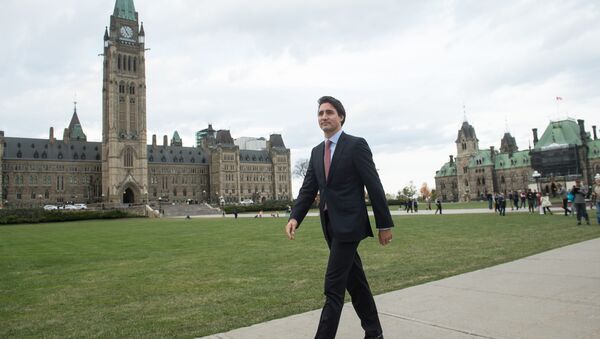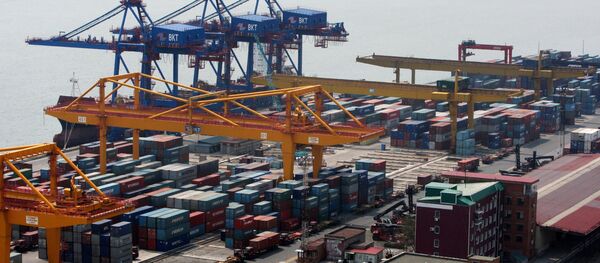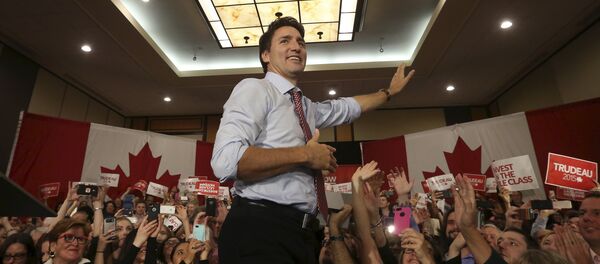On Monday, Justin Trudeau’s Liberal Party won almost 40 percent of votes cast in Canada’s general election, which translates into 184 seats in the 338 seat Canadian House of Commons.
"I think that he [Trudeau] will take the TPP agreement to parliament, have it discussed in the trade committee… but ultimately will approve it," Canadian international trade attorney Mark Warner told Sputnik on Wednesday.
By submitting the TPP to parliament for review, Warner noted, Trudeau would be going one step further than incumbent Prime Minister Stephen Harper’s Conservative Party.
Trudeau could afford a parliamentary review because there is little risk of the trade agreement being amended given that the Liberal Party will have a majority to force a binding "up and down" vote, he said.
One caveat to the TPP approval process in Canada, Warner added, is that it could be delayed based on whether US President Barack Obama can fast-track the deal through Congress in the spring.
The political advisors around Justin Trudeau, Warner claimed, are also very close to the White House, including former Obama aide David Axelrod, who will want to protect the US president’s legacy and ensure TPP is implemented.
"If this thing [TPP] is going to be submitted for fast-track in the US Congress in the spring, I don’t think the Liberals would want to be seen as sticking something into the eye of Obama," Warner argued.
If the TPP deal fails to pass on the Obama timetable, Warner suggested, the Liberals might wait for the next US President to take office, assuming it is anti-TPP candidate Hillary Clinton, to reopen the debate and provide an opportunity for Canada to renegotiate better terms.
"Prime Minister-elect Trudeau has stated clearly that he and the Liberal Party are pro-trade, and while the new government will review the TPP, it will do so with a favorable attitude," Levi said. "Hence, I don't think the election will have much, if any, effect."
On Monday, Obama and Trudeau discussed the importance of implementing the TPP agreement and strengthening US-Canadian trade relations, the White House said in a statement.
The TPP deal is expected to introduce deregulated and streamlined trade between the United States, Canada, Japan, Australia, Brunei, Chile, Malaysia, Mexico, New Zealand, Peru, Singapore and Vietnam.
Critics have argued that the TPP has been negotiated in unusual secrecy and could have negative implications for human rights, national sovereignty, employment and the environment. Proponents claim the deal will spur global economic growth and create jobs.
The US Congress is expected to vote on the controversial agreement in the beginning of 2016.



